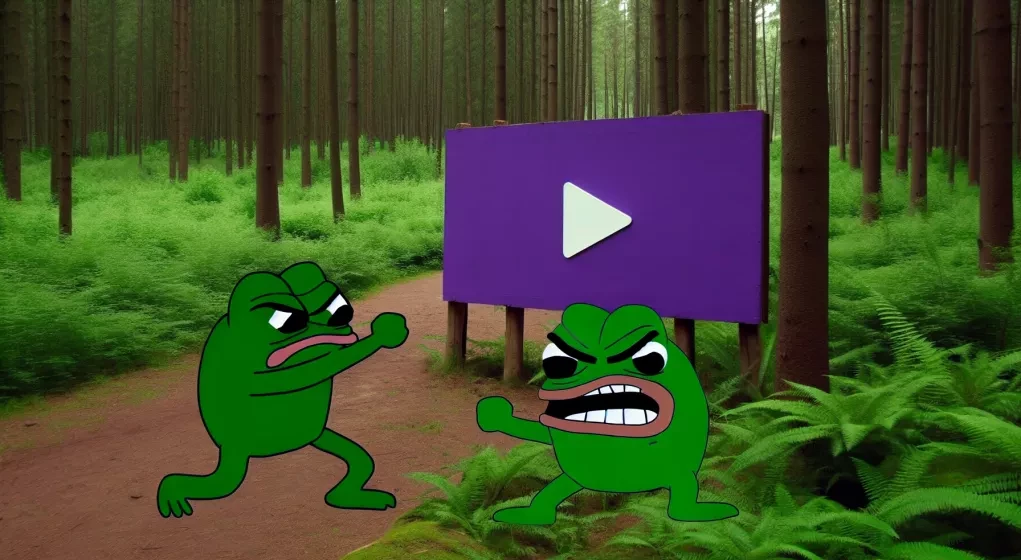In the shimmering limelight of a virtual stage, a controversy unfurls its dark wings as Twitch, the renowned live-streaming coliseum, metes out a thirty-day suspension to one of their partnered performers. Known to the digital world as Frogan, the streamer was plucked from the realm of pixels and chatrooms for unleashing a stream of vitriolic comments against the very men and women who don the uniforms of the US military.
The incident, a mélange of heated rage and icy disdain, erupted during a live broadcast. Frogan, wreathed in the casualness of a meal and the clinking ice of her tea, unabashedly wished for soldiers to meet with death or become ensnared in the throes of post-traumatic stress disorder. As these caustic wishes tumbled from her lips, unsuspecting spectators fuelled the fire by lining her coffers with donations.
Hailing from Dearborn, Michigan—a tapestry of Middle Eastern heritage woven deep into its urban threads—Frogan, who bears the namesake Morgan, embraces a heritage rich as her Lebanese father’s homeland and as diverse as her white mother’s roots. In a union of identity and faith, she identifies as Muslim. Her sentiments, shared with no veil of anonymity, reverberated across social media when she broadcasted Twitch’s official stance, which condemned her rhetoric as “targeted hateful conduct.”
Her words of contrition—or perhaps, one could say, the lack thereof—echoed through the digital corridors of X, the successor of Twitter. In a public missive tinged with resilient defiance, Frogan expressed remorse, but only for the initial flavor of her statements, not the substance. She lashed back with criticism of US military actions in nations she considers kin—lands that share her ancestral bonds and have been etched by the scar of conflict.
The web of military involvements she cited spanned Iraq, Afghanistan, Syria, Lebanon, and Palestine, painting a portrait of suffering and accusation. Yet the reality of US military operations stands somewhat aloof from her claims; while the US has supported allies and engaged foes, boots on the ground in places like Lebanon have not been seen for generations.
Twitch, a digital behemoth under the Amazon banner, is customarily a sanctuary for gamers and bettors to flaunt their mastery over virtual frontiers and garner the attention of sponsors. Yet even in this digital Eden, Frogan’s voice found a corner of discord.
Not content with inciting tumult on one front, Frogan’s digital footprint found its way to the neon-soaked pavements of Las Vegas—the desert’s oasis of opulence and excess. In a moment of impulsive candor, she beseeched the online cosmos, “GET ME OUT OF HERE!!!!” Her outcry from the arteries of Fremont Street sparked a vitriolic volley of responses. The reactions were as varied as they were venomous—a reflection of her own inflammatory speech—ranging from taunts about her physical appearance to calls for her exile and mentions of her contentious suspension.
The digital breadcrumbs left by her X profile whisper of her reasons—a concert, a gathering of sound and spectacle, drawing her to the glittering city that now felt more like a trap than escape.
In this maelstrom of controversy, Frogan stands at the storm’s eye, her voice resonating across the digital divide—a reminder of the potent, often reckless power of words cast into the endless echo chamber of the internet.






